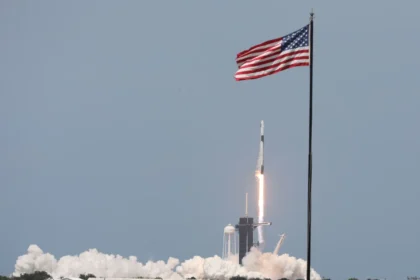Intel announced Friday that the U.S. government will take a 10% ownership stake in the company, in a deal negotiated with President Donald Trump’s administration. The chipmaker said the government is investing $8.9 billion in Intel common stock, though the funds will come from previously awarded but unpaid grants rather than new spending.
Intel’s statement explained that the investment is tied to $5.7 billion from the Biden-era CHIPS Act and $3.2 billion from the Secure Enclave program. Both grants had been awarded but not yet disbursed. Trump, posting on Truth Social, emphasized that “the United States paid nothing for these shares,” hailing the deal as a win for both America and Intel.
The arrangement has sparked legal uncertainty. According to The New York Times, bankers and lawyers warn the CHIPS Act may not permit the government to convert grants into equity, leaving the deal vulnerable to court challenges.
Trump has repeatedly criticized the CHIPS Act, once calling it a “horrible, horrible thing” and urging Congress to scrap it. Still, he struck a more conciliatory tone on Friday, praising Intel CEO Lip-Bu Tan, with whom he said he directly negotiated the agreement. Earlier this month, Trump accused Tan of conflicts of interest and demanded his resignation.
Intel maintains that the government’s role will be strictly passive, with no board seats, voting power, or access to company information. Tan, in a statement, said Intel is “grateful for the confidence the President and the Administration have placed in Intel, and we look forward to working to advance U.S. technology and manufacturing leadership.”
The company had already received $2.2 billion in CHIPS Act funding and is still seeking an additional $850 million in reimbursements. With U.S. semiconductor competitiveness under pressure, the deal could mark a turning point, but its legality and political fallout remain unresolved.






